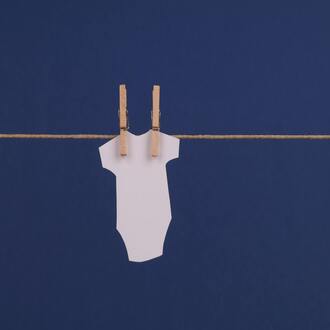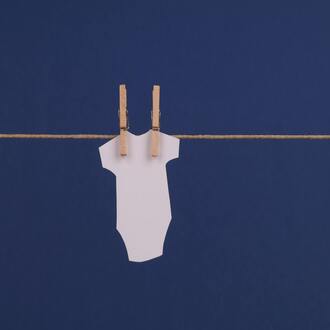Transcription Exclusive breastfeeding
The nutritional advantages of breast milk over any other kind of milk or artificial formula have been demonstrated in numerous scientific studies; these studies also highlight that breastfeeding is much more than providing the best possible food to the newborn; it is offering protection, security and love in a completely different environment from the one in which he/she was developing.
For this reason, the World Health Organization (WHO) and other regional and national organizations related to childhood health and development recommend exclusive breastfeeding during the first 6 months of a child's life and to continue breastfeeding together with appropriate complementary foods until 2 years of age or older, whenever possible and whenever the mother chooses to do so.
Exclusive breastfeeding consists of giving the child milk directly from the mother's breast or from a wet nurse, or giving the child expressed breast milk; and not offering other types of liquids, with the exception of medications, nutritional supplements or oral rehydration solutions.
It is very important that the newborn be placed on the mother's breast in the first half hour of life and at least until the baby has had its first breastfeeding. This first skin-to-skin contact should always be done when both mother and baby are healthy, regardless of the type of feeding that will be given to the baby later on.
Advantages of breastfeeding for the baby
- It is the food best adapted to the physiological characteristics of the newborn, so it is easily digested and absorbed.
- The close contact with the mother transmits tranquility, well-being and security, essential elements for an adequate adaptation to the environment, especially at times when the baby is satisfying one of its vital needs.
- Milk contains antibodies that reduce the incidence or effects of common childhood illnesses such as diarrhea, otitis, allergic reactions and respiratory diseases.
- Breast milk -especially colostrum- promotes gastrointestinal maturation in premature and low-weight newborns.
- It reduces the short, medium and long term risk of diseases such as type 1 diabetes, arterial hypertension, Crohn's disease, etcetera.
- It is always kept at the right temperature and its nutritional properties are not affected by the action of culinary processes.
- Many studies show that children fed with breast milk have higher rates of cognitive development than those fed with formulas.
- Breast milk varies in composition according to the stages of the baby's development; for example, colostrum contains the necessary elements to nourish and protect the baby's still immature organs.
Frequency and duration of the first feedings
The newborn should be placed on its mother's breast within the first half hour of life and at least until the baby has had its first breastfeeding. Newborns generally remain awake for about two hours after birth, then go into a stage of "recuperative" sleep that can last between 8 and 12 hours. During this stage, it is not advisable to insist on feeding, but they should remain close to the mother's breast so that they can resume breastfeeding when they need it.
Generally, from the first day and during the first 15-20 days of life, the baby should suckle between 8 and 12 times in 24 hours, with irregular intervals between feedings, but never more than 3 hours. It is recommended that very sleepy infants, who suckle less than necessary, be stimulated by placing them skin-to-skin on the mother's back and giving them rotating massages on the soles of the feet or caresses on the back from the bottom up.
The mother should offer the breast whenever the baby wants it -both day and night- and for as long as the baby wants it; this type of breastfeeding known as "free demand" stimulates milk production and avoids the risk of breast complications such as mastitis.
Is it necessary or advisable to offer water, serum or any other liquid to infants without medical indication?
It is neither necessary nor advisable to offer water, serum or supplements to infants, unless directed by the pediatrician.
Within 24 to 48 hours of hospital discharge, it is necessary for the pediatrician to assess the infant's health status and evaluate the results of breastfeeding.
Giving water or other liquids to infants before 6 months of age increases the risk of diarrhea or other gastrointestinal infections and reduces breast milk production.
Why is it not recommended to give the baby pacifiers or nipples?
It is not advisable to give the baby pacifiers or nipples because they are sucked in a different way than the breast; causing the newborn to try to suck the breast that way and not get the right amount of milk; increasing the effort and time invested in each feeding, as well as the chances of becoming exhausted and unsatisfied without having finished all the milk in each breast.
Benefits of colostrum
Colostrum is a thick yellowish liquid secreted by the mammary glands during the first 3 to 4 days after birth. It is the food best adapted to the baby's needs, able to nourish and protect the baby from infections.
Colostrum is very rich in minerals, fat-soluble vitamins, carotenes and proteins; among the proteins it contains are immunoglobulins -antibodies responsible for protecting organs and systems against infections.
The main benefits for the baby are:
- As it is an adapted milk, it facilitates the digestion and assimilation of nutrients.
- It protects and stimulates the growth of the intestinal mucosa of the newborn, which during this stage is very vulnerable to the action of any harmful agent.
Should the first breast milk be discarded until it acquires a lighter color?
Of course not, it has been proven that babies who drink colostrum directly from the mother's breast after birth, run less risk of getting sick, learn to suck quickly and adapt better to the final breast milk.
breastfeeding maternal exclusive




